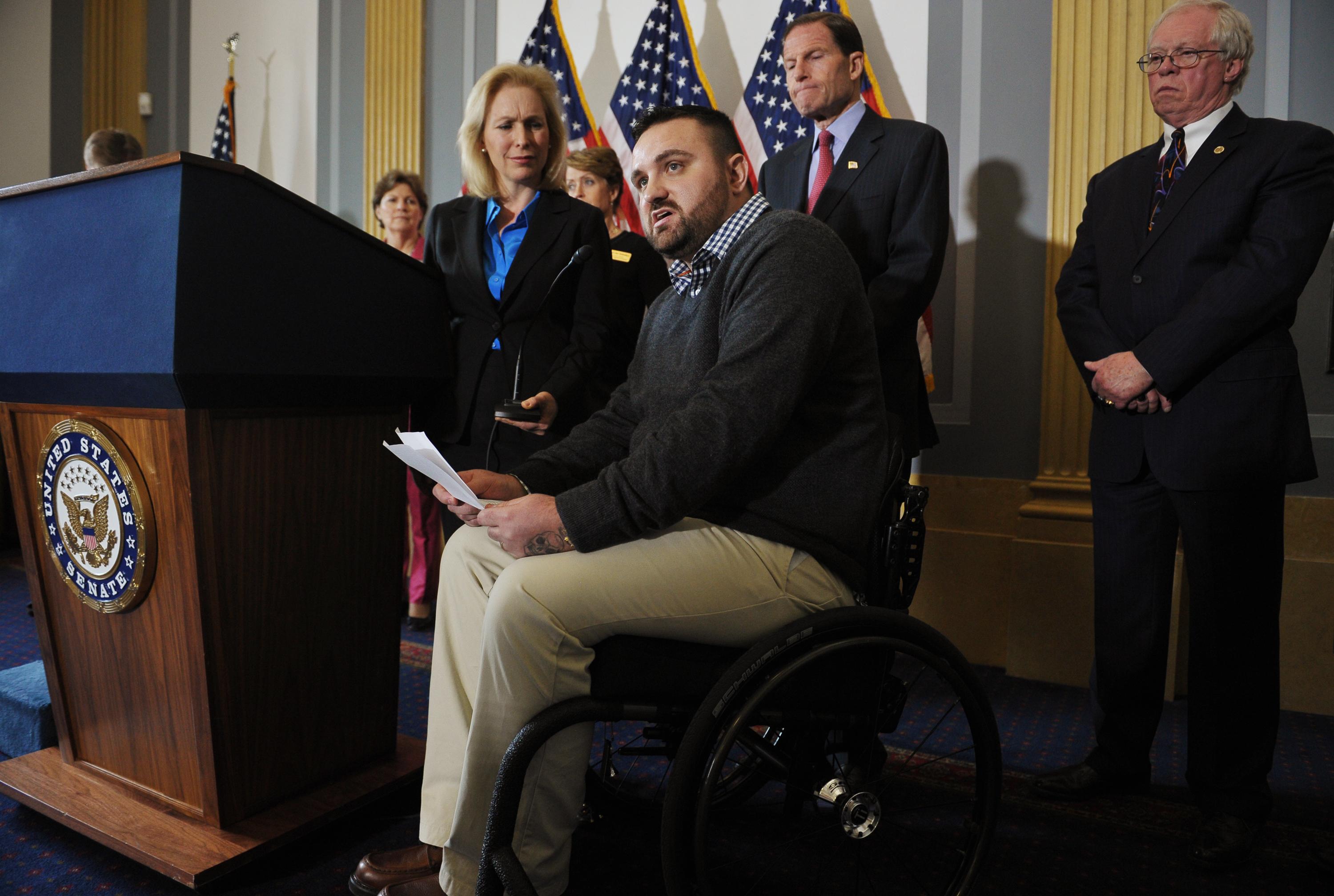This month, GQ published a long reported piece on the underdiscussed topic of male victims of military sexual assault. We’re all so used to thinking of sexual assault as a “women’s issue,” but because far more men enlist in the military than women, male victims of sexual assault outnumber female ones. Nathaniel Penn of GQ does a great job of digging into the problem, interviewing a variety of men who were assaulted by their fellow soldiers, and then often victimized again by a military system that all too frequently sees sexual assault as a problem to be covered up rather than a crime to be punished.
The extent to which the military would do anything to cover up sexual assault by pressuring these victims to disappear is astounding. “Research suggests that the military brass may have conspired to illegally discharge MST victims by falsely diagnosing them with personality disorders,” writes Penn. Not only did this mean they could wash their hands of the victims, but the “diagnoses also spare the government the costs of aftercare” because the “VA considers a personality disorder to be a pre-existing condition, so it won’t cover the expense of treatment for PTSD caused by a sexual assault.” This, even though many of these alleged assaults are bone-chillingly brutal, with victims who were subjected to gang rapes, brutalized with items like broomsticks, and held captive by men they thought were their comrades.
For male victims of sexual assault who are able to get military-provided treatment, things aren’t much better, because “the VA’s facilities for MST focus largely on women,” writes Penn. “In fact, the statute that establishes these programs makes mention only of female victims.” Medical questionnaires assume female victims, and some of the doctors are skeptical that male victims of sexual assault exist at all.
Group therapy offered for sexual assault victims often puts men in the same group with women, even though, as one veteran said, “I don’t want to discuss in a room full of women how there’s nerve damage to my prostate from the attack, and I’m sure they don’t really want to discuss their reproductive organs in a room full of men.”
Clearly, there’s a serious problem with our tendency to talk about sexual assault as “violence against women.” The better descriptor would be “violent acts of male domination,” to reflect what motivates rapists. As these men’s experiences show, plenty of rapists use sexual assault to establish dominance over other men, not just over women. Framing sexual assault as “violence against women” also does little to debunk the myth that rapists are just men who got carried away with sexual excitement. Sexual assault is a deliberate crime, empowering the rapist by making the victim feel small. It is about domination and violence, not sex. “To this day I don’t know why they did it, because they had beautiful girlfriends,” one veteran told Penn. The answer is: It’s not about sex, but about victimizing others to feel powerful. And the sooner we understand that, the easier it will be to get help to all victims, regardless of gender.
